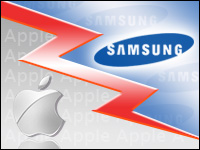
Consumers continued to put their trust in e-commerce websites in 2012, according to the latest American Customer Satisfaction Index released Tuesday.
The ACSI, produced in partnership with the customer analytics experience firm ForeSee, showed e-commerce sites making incremental gains in customer satisfaction ratings. The overall score for all e-commerce companies surveyed hit 81.1 out of a possible 100 points, a 1.2 percent jump over 2011.
The e-commerce sector surveyed included the online retail, brokerage, and travel categories. The ACSI finds that improvement is due in part to strong performances smaller e-retailers and brokerages, though once again Amazon scored the highest marks in the report.
The Amazon Factor
Amazon has already come out on top in several recent surveys, including the M-Commerce report released by ForeSee earlier this month, and a Harris Poll reputation ranking report.
While Amazon retained the top ASCI spot for online retail aggregate, it did drop a point — from a score of 86 last year to 85 in 2012.
“They really do a great job,” Larry Freed, president and CEO of ForeSee told CRM Buyer. “They’ll go up a point or down a point, but they’re always on top. That’s no small feat. They continue to grow their strength in retail. [Amazon] really is the game that everybody else is chasing for the most part.”
Amazon’s competition, however, isn’t standing still. “Brick and mortar retailers are not conceding the Internet to online natives such as Amazon,” Freed added. “They are investing heavy resources in providing a better experience for their customers, providing more evidence that competition is good for the consumer.”
Investing in Customers
Online brokerages overall gained two points on the ASCI with a score of 78. That was also Fidelity’s score as the top brokerage, followed by Charles Schwab and TD Ameritrade — both at 77 — and E*Trade at 73. Improved scores among most of the brokerage firms demonstrated that consumers are once again becoming comfortable with investing.
“I think on one hand the consumers are starting to accept this uncertainty before us,” said Freed. “Consumers are getting used to that mode of operation, and they continue to get more comfortable with the online side of things, and that’s helped a great deal.”
Multichannel Gains
The companies that saw the greatest gains on the ASCI are those that succeeded in branching out from a single channel. Those companies changed their view from how they see their business to how consumers view it.
“The big challenge for all these companies, as the consumer continues to evolve into a multichannel, multi-device consumer, is providing a great experience across all channels,” said Freed. “Companies think about their channels, consumers think about the brand. I think that’s the biggest challenge facing many of these companies today.”
Many marketers recognize the need to initiate multichannel marketing strategies.
“Now more than ever, consumers expect an integrated multichannel experience from their preferred brands,” Tessa Wegert, digital media strategist with Enlighten told CRM Buyer. “They want multiple touchpoints and digital platforms through which to research products, share branded information, communicate with CRM specialists, and make purchases, and they’re apt to correlate this kind of versatility with a positive brand experience.”
Brands that receive high satisfaction scores are the ones that actually engage in digital conversations with their customers, Wegert noted. “Companies that acknowledge the degree to which consumers anticipate and appreciate multichannel marketing and respond in kind are in the best possible position to maintain lasting, loyal relationships with their customers.”

















































